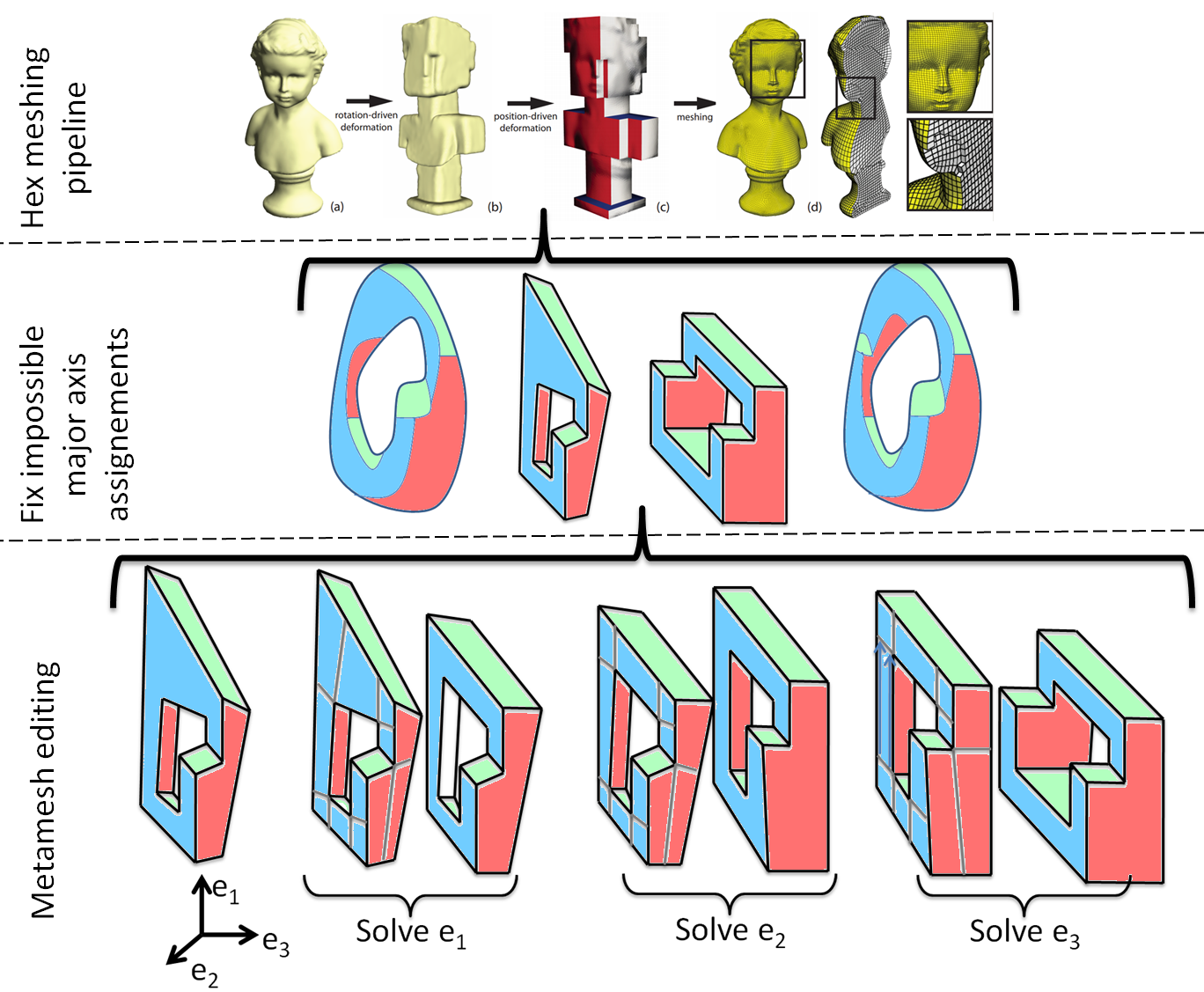Section: New Results
Fixing normal constraints for generation of polycubes
Participants : Nicolas Ray, Dmitry Sokolov.
A polycube is a piecewise linearly defined surface where all faces are squares that are perpendicular to an axis of a global basis. Deforming triangulated surfaces to polycubes provides maps (form the original surface to the polycube) that can be used for a number of applications including hex-meshing. To define such a deformation, it is necessary to determine, for each point of the original surface, what will be its orientation (global axis) in the polycube.
This problem is actually tackled by heuristics that basically affect the closest global axis to the surface normal. Coupled with an mesh deformation as pre-processing and some fixing rules as a post-processing, it is able to provide nice results for a number of surfaces. However, nothing ensures that the surface can be deformed to a polycube having these desired face orientation.
We have worked on a method able to determine if there exists a deformation of the surface that respects a given orientation constraint on each point. We have also design an automatic solution that can fix constraints that would prevent the existence of a deformation into a polycube (Figure 6 ).
This study has highlighted that the constraints on desired orientation are global and requires constrained optimization methods to be solved. Our current solution is able to manage many cases where previous works would fail, but we can still produce some complex cases where interactions between dimension may lead to deadlocks.
|



